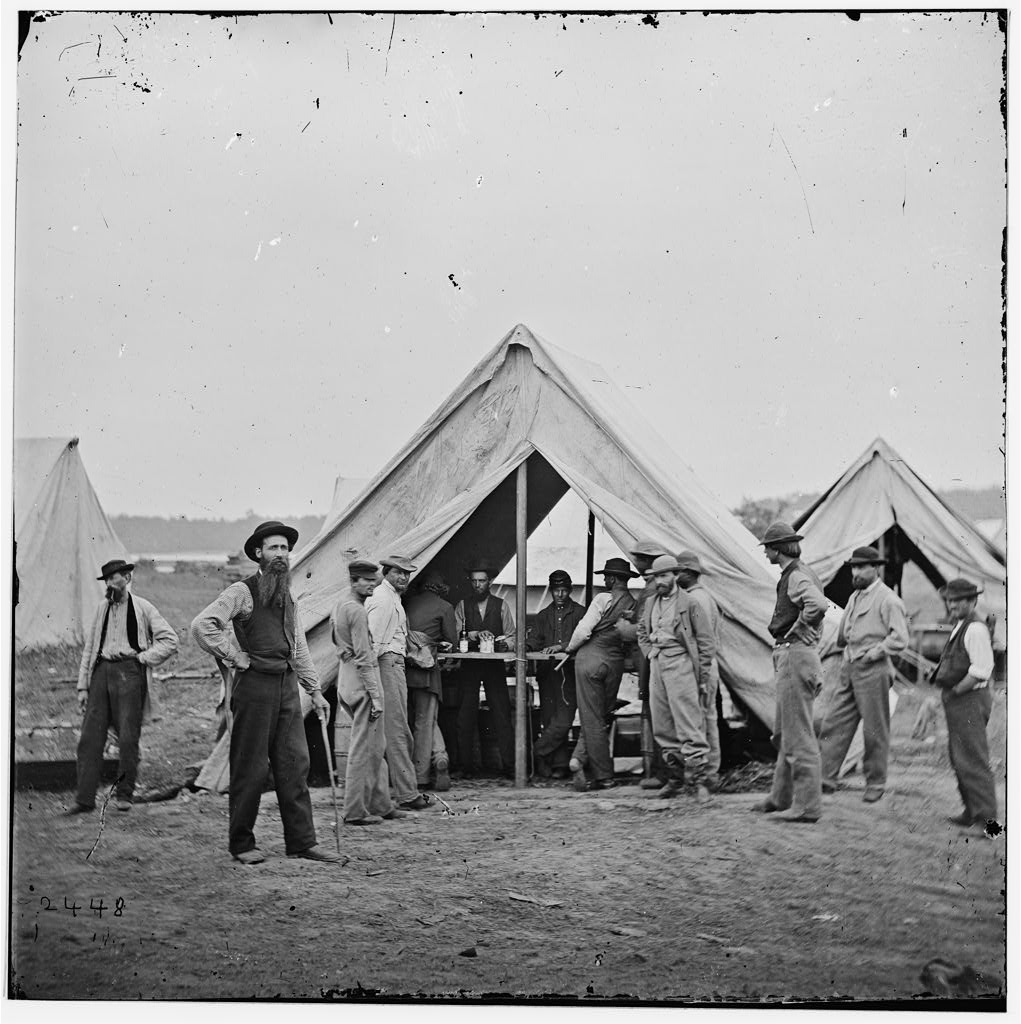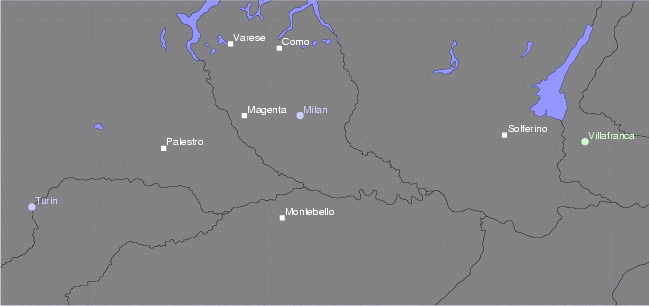|
Vivandière
Vivandière or cantinière is a French name for women who are attached to military regiments as sutlers or canteen keepers. Their actual historic functions of selling wine to the troops and working in Canteen (place), canteens led to the adoption of the name 'cantinière' which came to supplant the original 'vivandière' starting in 1793. The use of both terms was common in French until the mid-19th century, and 'vivandière' remained the term of choice in non-French-speaking countries such as the US, Spain, Italy, and Great Britain. Vivandières served in the French army up until the beginning of World War I, but the custom (and the name) spread to many other armies. Vivandières also served on both sides in the American Civil War, and in the armies of Spain, Italy, the List of historic states of Germany, German states, Switzerland, and various armies in South America, though little is known about the details in most of those cases as historians have not done extensive research on ... [...More Info...] [...Related Items...] OR: [Wikipedia] [Google] [Baidu] |
Sutler
A sutler or victualer is a civilian merchant who sells provisions to an army in the field, in camp, or in quarters. Sutlers sold wares from the back of a wagon or a temporary tent, traveling with an army or to remote military outposts. Sutler wagons were associated with the military, while chuck wagons served a similar purpose for civilian wagon trains and outposts. Etymology The word came into English from Dutch, where it appears as ''soetelaar'' or ''zoetelaar''. It meant originally "one who does dirty work, a drudge, a scullion," and derives from ''zoetelen'' (to foul, sully; modern Dutch ''bezoedelen''), a word cognate with "suds" (hot soapy water), "seethe" (to boil) and "sodden". Role in supplying troops These merchants often followed the armies during the French and Indian War, American Revolution, American Civil War, and the Indian Wars, to sell their merchandise to soldiers. Generally, the sutlers built their stores within the limits of an army post or just off the de ... [...More Info...] [...Related Items...] OR: [Wikipedia] [Google] [Baidu] |
Fenton - Vivandiere
Fenton may refer to: Places Canada * Fenton, Saskatchewan United Kingdom * Fenton, Cambridgeshire, with neighbouring Pidley, part of the parish of Pidley cum Fenton * Fenton, Cumbria * Fenton, South Kesteven, Lincolnshire * Fenton, West Lindsey, Lincolnshire * Fenton, Northumberland * Fenton, Nottinghamshire * Fenton, Staffordshire (Stoke-on-Trent) * Fenton Tower, East Lothian, Scotland United States * Fenton, Iowa * Fenton, Kentucky * Fenton, Louisiana * Fenton, Michigan * Fenton, Missouri * Fenton, New York * Fenton Township, Whiteside County, Illinois * Fenton Township, Michigan * Fenton Township, Minnesota Other uses *Fenton (name) See also * Fenton's reagent * Clan Fenton, a Scottish clan * Fenton Art Glass Company * Fenton Communications * Ferrar Fenton Bible, a translation of the bible in modern English * Fentons Creamery Fentons Creamery is a historic ice cream parlor and restaurant located on Piedmont Avenue in Oakland, California, United States. Fento ... [...More Info...] [...Related Items...] OR: [Wikipedia] [Google] [Baidu] |
National Convention
The National Convention (french: link=no, Convention nationale) was the parliament of the Kingdom of France for one day and the French First Republic for the rest of its existence during the French Revolution, following the two-year National Constituent Assembly and the one-year Legislative Assembly. Created after the great insurrection of 10 August 1792, it was the first French government organized as a republic, abandoning the monarchy altogether. The Convention sat as a single-chamber assembly from 20 September 1792 to 26 October 1795 (4 Brumaire IV under the Convention's adopted calendar). The Convention came about when the Legislative Assembly decreed the provisional suspension of King Louis XVI and the convocation of a National Convention to draw up a new constitution with no monarchy. The other major innovation was to decree that deputies to that Convention should be elected by all Frenchmen twenty-one years old or more, domiciled for a year and living by the prod ... [...More Info...] [...Related Items...] OR: [Wikipedia] [Google] [Baidu] |
Second French Intervention In Mexico
The Second French Intervention in Mexico ( es, Segunda intervención francesa en México), also known as the Second Franco-Mexican War (1861–1867), was an invasion of Mexico, launched in late 1862 by the Second French Empire, which hoped to replace the Mexican Republic with a monarchy favorable to French interests. After the administration of Mexican President Benito Juárez placed a moratorium on foreign debt payments in 1861, France, the United Kingdom, and Spain agreed to the Convention of London, a joint effort to ensure that debt repayments from Mexico would be forthcoming. On 8 December 1861, the three navies disembarked their troops at the port city of Veracruz, on the Gulf of Mexico. However, when the British discovered that France had an ulterior motive and unilaterally planned to seize Mexico, the United Kingdom separately negotiated an agreement with Mexico to settle the debt issues and withdrew from the country; Spain subsequently left as well. The resulting Fr ... [...More Info...] [...Related Items...] OR: [Wikipedia] [Google] [Baidu] |
Second Italian War Of Independence
The Second Italian War of Independence, also called the Franco-Austrian War, the Austro-Sardinian War or Italian War of 1859 ( it, Seconda guerra d'indipendenza italiana; french: Campagne d'Italie), was fought by the Second French Empire and the Savoyard Kingdom of Sardinia against the Austrian Empire in 1859 and played a crucial part in the process of Italian Unification. A year prior to the war, in the Plombières Agreement, France agreed to support Sardinia's efforts to expel Austria from Italy in return for territorial compensation in the form of the Duchy of Savoy and the County of Nice. The two states signed a military alliance in January 1859. Sardinia mobilised its army on 9 March 1859, and Austria mobilized on 9 April. On 23 April, Austria delivered an ultimatum to Sardinia demanding its demobilization. Upon Sardinia's refusal, the war began on 26 April. Austria invaded Sardinia three days later, and France declared war on Austria on 3 May. The Austrian invasi ... [...More Info...] [...Related Items...] OR: [Wikipedia] [Google] [Baidu] |
Crimean War
The Crimean War, , was fought from October 1853 to February 1856 between Russia and an ultimately victorious alliance of the Ottoman Empire, France, the United Kingdom and Piedmont-Sardinia. Geopolitical causes of the war included the decline of the Ottoman Empire, the expansion of the Russian Empire in the preceding Russo-Turkish Wars, and the British and French preference to preserve the Ottoman Empire to maintain the balance of power in the Concert of Europe. The flashpoint was a disagreement over the rights of Christian minorities in Palestine, then part of the Ottoman Empire, with the French promoting the rights of Roman Catholics, and Russia promoting those of the Eastern Orthodox Church. The churches worked out their differences with the Ottomans and came to an agreement, but both the French Emperor Napoleon III and the Russian Tsar Nicholas I refused to back down. Nicholas issued an ultimatum that demanded the Orthodox subjects of the Ottoman Empire ... [...More Info...] [...Related Items...] OR: [Wikipedia] [Google] [Baidu] |
Napoleon III
Napoleon III (Charles Louis Napoléon Bonaparte; 20 April 18089 January 1873) was the first President of France (as Louis-Napoléon Bonaparte) from 1848 to 1852 and the last monarch of France as Emperor of the French from 1852 to 1870. A nephew of Napoleon I, he was the last monarch to rule over France. Elected to the presidency of the Second Republic in 1848, he seized power by force in 1851, when he could not constitutionally be reelected; he later proclaimed himself Emperor of the French. He founded the Second Empire, reigning until the defeat of the French Army and his capture by Prussia and its allies at the Battle of Sedan in 1870. Napoleon III was a popular monarch who oversaw the modernization of the French economy and filled Paris with new boulevards and parks. He expanded the French overseas empire, made the French merchant navy the second largest in the world, and engaged in the Second Italian War of Independence as well as the disastrous Franco-Prussian War, ... [...More Info...] [...Related Items...] OR: [Wikipedia] [Google] [Baidu] |
Second French Empire
The Second French Empire (; officially the French Empire, ), was the 18-year Imperial Bonapartist regime of Napoleon III from 14 January 1852 to 27 October 1870, between the Second and the Third Republic of France. Historians in the 1930s and 1940s often disparaged the Second Empire as a precursor of fascism. That interpretation is no longer widely held, and by the late 20th century they were giving it as an example of a modernising regime. Historians have generally given the Empire negative evaluations on its foreign policy, and somewhat more positive evaluations of domestic policies, especially after Napoleon III liberalised his rule after 1858. He promoted French business and exports. The greatest achievements included a grand railway network that facilitated commerce and tied the nation together with Paris as its hub. This stimulated economic growth and brought prosperity to most regions of the country. The Second Empire is given high credit for the rebuilding of Paris ... [...More Info...] [...Related Items...] OR: [Wikipedia] [Google] [Baidu] |
French Cantiniere, 1853
French (french: français(e), link=no) may refer to: * Something of, from, or related to France ** French language, which originated in France, and its various dialects and accents ** French people, a nation and ethnic group identified with France ** French cuisine, cooking traditions and practices Fortnite French places Arts and media * The French (band), a British rock band * "French" (episode), a live-action episode of ''The Super Mario Bros. Super Show!'' * ''Française'' (film), 2008 * French Stewart (born 1964), American actor Other uses * French (surname), a surname (including a list of people with the name) * French (tunic), a particular type of military jacket or tunic used in the Russian Empire and Soviet Union * French's, an American brand of mustard condiment * French catheter scale, a unit of measurement of diameter * French Defence, a chess opening * French kiss, a type of kiss involving the tongue See also * France (other) * Franch, a surname * French ... [...More Info...] [...Related Items...] OR: [Wikipedia] [Google] [Baidu] |
July Monarchy
The July Monarchy (french: Monarchie de Juillet), officially the Kingdom of France (french: Royaume de France), was a liberal constitutional monarchy in France under , starting on 26 July 1830, with the July Revolution of 1830, and ending 23 February 1848, with the Revolution of 1848. It marks the end of the Bourbon Restoration (1814–1830). It began with the overthrow of the conservative government of Charles X, the last king of the House of Bourbon. , a member of the more liberal Orléans branch of the House of Bourbon, proclaimed himself as (" King of the French") rather than "King of France", emphasizing the popular origins of his reign. The king promised to follow the ''juste milieu'', or the middle-of-the-road, avoiding the extremes of both the conservative supporters of Charles X and radicals on the left. The July Monarchy was dominated by wealthy bourgeoisie and numerous former Napoleonic officials. It followed conservative policies, especially under the influ ... [...More Info...] [...Related Items...] OR: [Wikipedia] [Google] [Baidu] |



